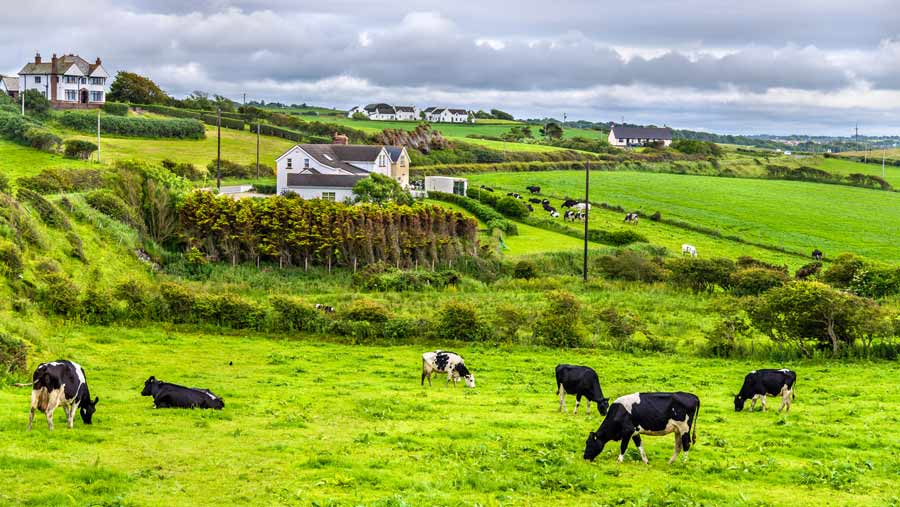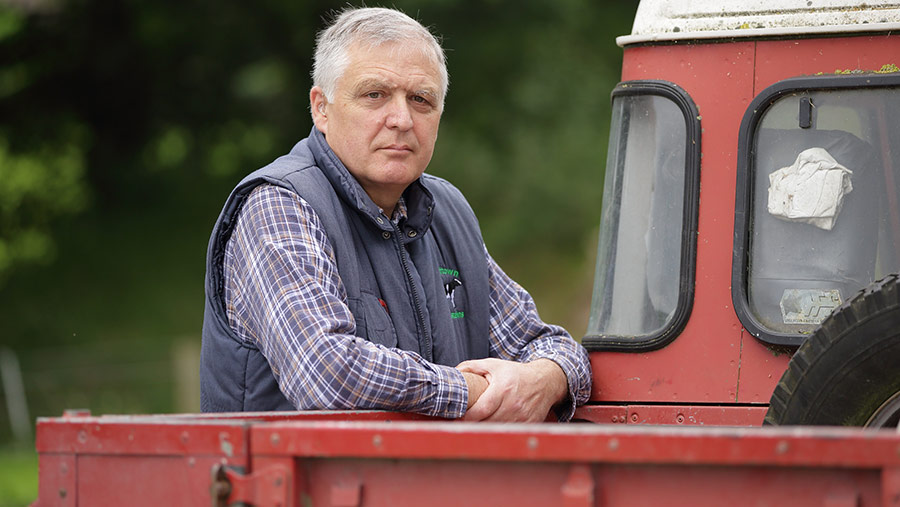Northern Ireland cattle farmers rue the mounting cost of bovine TB
 © Leonid Andronov/Adobe Stock
© Leonid Andronov/Adobe Stock The absence of meaningful action to tackle bovine tuberculosis in Northern Ireland is causing huge financial and emotional turmoil for cattle farmers, say union leaders.
At the end of October, the herd incidence level for TB in the province reached 9.95%, according to official data from the NI Department of Agriculture, Environment and Rural Affairs (Daera).
The only time it has ever exceeded this percentage was following the food-and-mouth outbreak in 2001, said David Brown, president of the Ulster Farmers’ Union (UFU).
See also: NI dairy farmers lose entire herd to bovine TB
In the past year, 16,526 TB-infected cows have been slaughtered in Northern Ireland – a 17.6% increase on the previous year when 14,058 TB reactors were removed from farms.
A recent Daera stakeholder working group was informed that the cost of the bovine TB programme now sits at more than £45m annually for the 2021-22 financial year, with the 2022-23 year forecast to be in the region of £48m.
Meanwhile, the deployment of the revised bovine TB eradication strategy by Daera is “eagerly awaited” by UFU members.
“Over the past 10 years, the cost of bovine TB has increased. By April 2023 [end of the financial year], it is projected to have cost the taxpayer an additional £17.1m,” said Mr Brown.
“These costs do not take into account any of the lost revenue incurred on farms, let alone the stress that farm families are subjected to when they lose livestock to bovine TB.”
Mr Brown, who is also a suckler beef and sheep farmer in County Fermanagh, said the UFU has committed a huge amount of time and resources to driving forward Daera’s new, long-term revised bovine TB eradication strategy for Northern Ireland.
“The TB Strategic Partnership Group has a finalised strategy that has followed the science sitting there ready to go,” he added.
“Meanwhile, the absence of meaningful action continues to yield huge financial losses, causing emotional devastation on NI farms.”
‘Contradiction’ to net-zero aims
Farmers were being challenged by government to reduce their carbon footprint and produce more efficiently as part of efforts to reach net zero.
But he described the removal of 16,000 animals each year due to bovine TB as a “complete contradiction” to these aims.
Mr Brown urged Daera to introduce its revised TB strategy urgently so that farmers can use every measure, including tackling the disease in wildlife, to help eradicate the disease from NI once and for all.
A Daera spokesperson said: “The department shares the industry’s concerns about the cost of bovine TB in Northern Ireland, in terms of public expenditure and in its cost to farm businesses.
“Since the former minister [Edwin Poots] launched the bovine TB eradication strategy in March, officials have been working closely with the TB Eradication Partnership and industry stakeholders to progress the strategy’s actions.
“The wildlife intervention part of the strategy has been the subject of legal challenge, with the outcome of a judicial review expected in the coming weeks. The outcome will determine how the implementation of that aspect of the strategy can move forward.”
Case study: William Irvine, UFU deputy president and dairy farmer
UFU deputy president William Irvine has personal experience of the crippling impact a bovine TB outbreak can have on a farm business.
Mr Irvine runs a dairy farming partnership with his wife and son in Mountnorris, County Armagh, where they manage 140 dairy cows and followers.

© UFU/Cliff Donaldson
Last summer, one cow tested positive for the disease during routine TB testing and the farm has since been placed under movement restrictions.
“We have not gone clear yet. We have had a couple more tests since then and lost another three animals,” Mr Irvine told Farmers Weekly.
“We’re testing again in January. We’ll just have to hold our breath and hope for the best.”
The Irvine family had been using sexed semen to build up their dairy herd numbers and sell the offspring at a few weeks old.
The herd now needs two clear tests at least 60 days apart to restore its TB-free status and the removal of movement restrictions.
“This year, we have 70-plus animals calving on the ground. We were fortunate that we built another shed in the summer.
“If this [TB outbreak] had happened 12 months ago, I don’t know how we would have coped,” Mr Irvine said.
Bovine TB has been wreaking havoc with his farming neighbours. One farmer lost 207 cows out of his 500-cow herd following a recent positive test, and another farmer had his herd wiped out.
“Everybody is struggling with the consequences of bovine TB; it causes stress for the animals, and stress for the farmers,” added Mr Irvine.
“There are more horrendous stories than our own. But to lose 16,000 head of cattle out of small cattle herd, when we are trying to farm more efficiently and sustainably, is unacceptable.”
